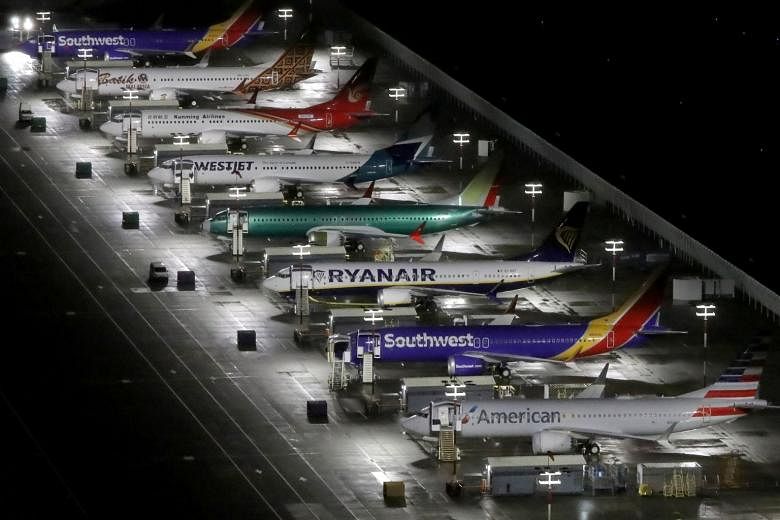JAKARTA (BLOOMBERG) - The mother of the pilot of the Lion Air plane that plunged into the sea last year, killing 189 people, said Boeing should be required to re-certify the 737 Max aircraft and mandate simulator training for all pilots.
The plane's design and a lack of information for pilots on how to deal with malfunctions contributed to the crash of Flight 610, Indonesian investigators told the victims' families Wednesday (Oct 23) in Jakarta.
Relatives of the doomed jet's pilot, Bhavye Suneja, attended the briefing, said Sangeeta Suneja, the pilot's mother.
A flight-control mechanism on the 737 Max called the Maneuvering Characteristics Augmentation System, or MCAS, was approved based on incorrect assumptions, and its reliance on a single angle-of-attack sensor made it vulnerable, according to a presentation to the families by Indonesia's National Transportation Safety Committee.
The presentation also criticised the plane's certification process.
"Without simulator training, it is going to be lethal to fly the aircraft again," Sangeeta Suneja said by phone from Mumbai, where she's taking care of her ill father.
"Whenever a pilot flies, he just goes by the book, whatever is written and whatever they've gone through in simulation sessions. They create a muscle memory on what to do on a particular input."
The MCAS feature, which automatically pushes the plane's nose downward if it detects the danger of an aerodynamic stall, was also implicated in the crash of an Ethiopian Airlines 737 Max in March that claimed 157 lives.
The Indonesian agency said a lack of guidance around MCAS made it harder for crews to respond to automated actions by the system.
Boeing on Tuesday said the head of its jetliner division was stepping down after less than three years, just days after after chief executive officer Dennis Muilenburg was stripped of the chairman's job.
A global flying ban on the jet has cost Boeing US$9.2 billion (S$12.5 billion), and the plane-maker's shares have tumbled about 20 per cent since the Ethiopian Airlines crash on March 10.
"They are already facing the financial punishment," said Suneja, who has worked with Air India's commercial division for more than three decades.
"Boeing has removed two top heads, but that's just a face change, a facade. They goofed up at the technical level, and they haven't done anything about that."
Bhavye Suneja, who was a 31-year-old Indian with more than 6,000 flight hours behind him, failed to regain control of the Lion Air flight after the automated system repeatedly pushed the nose down.
Indonesian investigators are due to publish their final report on the crash at 2pm local time on Friday.
Problems with the three-month-old Lion Air jet's sensors had been reported on three previous flights, including one made from Bali the day before the crash. In that instance, an off-duty pilot traveling in the cockpit identified the problem and told the crew how to disable the malfunctioning control system. However, the pilots didn't report key issues with the flight after they landed.
A Boeing representative wrote in an email that it was premature to comment on the report as it hasn't been officially released by Indonesian investigators. Lion Air didn't immediately respond to calls seeking comment.


